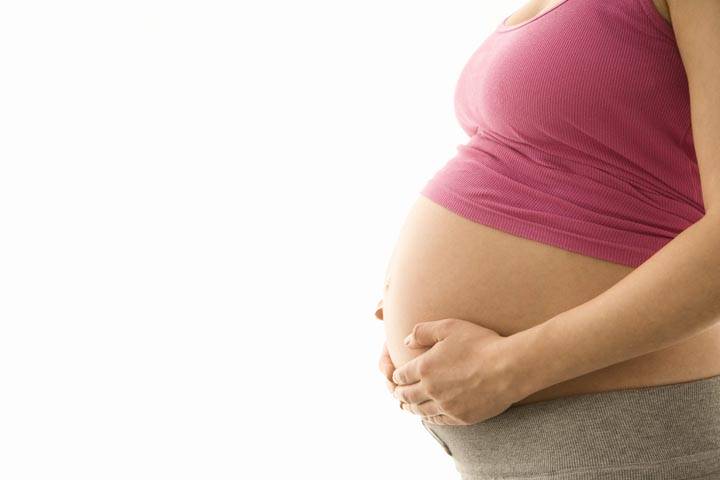TORONTO – Pregnancy does not appear to increase the risk of death among women who have had breast cancer, say researchers, who found that five-year survival rates were similar for women who got pregnant and those who did not.

There’s been some concern that pregnancy in proximity to a breast cancer diagnosis might increase the risk of recurrence and death, but a large study by Women’s College Hospital found in most cases it doesn’t affect survival.
The study, published Thursday in the journal JAMA Oncology, analyzed health records for more than 7,500 breast cancer patients aged 20 to 44 in Ontario between 2003 and 2014.
READ MORE: Why listeria is a bigger miscarriage threat than what docs initially thought
Overall survival was 88 per cent for women with no pregnancy, 82 per cent for those with breast cancer while pregnant, and about 97 per cent for women who got pregnant six months or more after a breast cancer diagnosis. The difference among the groups is not considered statistically significant.
“We think that a pregnancy at the time of breast cancer does not pose a risk to the mother,” said principal researcher Dr. Steven Narod, director of the hospital’s familial breast cancer research unit.
Narod said young women being treated for breast cancer often ask their doctors if it’s safe for them to have a baby following treatment for the disease.
READ MORE: Fish that pregnant women shouldn’t eat (and options that are safe)
- Canadian man dies during Texas Ironman event. His widow wants answers as to why
- ‘Sciatica was gone’: hospital performs robot-assisted spinal surgery in Canadian first
- Canadians more likely to eat food past best-before date. What are the risks?
- Treatment from female doctors leads to lower death rates, study finds
“They want to know a couple of things: ‘Is it possible that the hormones or the baby or the state of pregnancy may jeopardize my survival?'” he said. “Generally doctors have been supportive in saying, ‘Well, we think it’s OK, but maybe you should wait a couple of years.'”
The new findings suggest many women may not need to delay that long to have a baby, said Narod, who advised that women discuss the timing with their doctors.
“You’d want to be finished your treatment. You certainly don’t want to be pregnant while you’re on chemotherapy or (the drug) tamoxifen, which is considered possibly hazardous to the baby,” he said.
READ MORE: How a father’s diet, lifestyle affect his baby’s healthy development
“You want to recover in body and in spirit from the nausea, the weight loss you might experience. And you want to be back to your healthy state, physically and mentally, before embarking on a pregnancy.
“We would generally think between one and two years is reasonable,” he said, although a small group of women in the study were pregnant at six months and their survival rate was similar to others who got pregnant at a later point.
In fact, the researchers were surprised at how well women in the earliest group did in terms of survival. “If we looked at the group of women who got pregnant at six months to five years after, that seemed to be safe,” Narod said.
Dr. Karen Glass, a reproductive endocrinologist and infertility specialist at Toronto’s Sunnybrook Health Sciences Centre, said the study confirms what some previous research has found about breast cancer and pregnancy.
READ MORE: This Canadian mom’s uplifting message about her pregnancy body is going viral
Her advice to women: “I would say that from all of the studies that we have, absolutely it’s safe for you to get pregnant after breast cancer.”
But Glass, who was not part of the study team, pointed out that young women diagnosed with breast cancer should think about having their eggs or embryos cryopreserved before treatment because the most common chemotherapy drug given can damage the ovaries, playing havoc with fertility.
Dr. Heather Shapiro, a fertility specialist at Mount Sinai Hospital in Toronto, agreed, saying a major concern for young women with breast cancer is whether they will even have the opportunity to get pregnant due to their treatment. The Ontario government, for instance, covers the costs of fertility preservation.
“That is a really important message when we’re talking about pregnancy and cancer, making sure that you have that option available.”
Women who’ve had estrogen receptor-positive breast cancer and are put on tamoxifen to prevent the cancer from coming back would have to go off the medication, due to the risk of complications to the fetus, said Narod.
However, that’s a choice some women who want a family make, despite the risk of recurrence.
“For many women, the benefits of having the pregnancy far outweigh the potential risks of their cancer,” agreed Shapiro, who was not involved in the study.
The researchers found that breast cancer diagnoses among women in their 20s and 30s were associated with more aggressive tumours, which carry a higher risk of recurrence and death, but pregnancy was not a risk factor.
In light of the findings, Narod wonders if, in some cases, pregnancy has a preventive effect on the risk of breast cancer at least for those he calls the more easily treated “soft ones.”
“You get the impression that pregnancy and breast cancer are a bad thing. It may, in fact, be that pregnancy actually reduces the number of deaths from breast cancer, but we don’t see it because the ones that it doesn’t prevent are the ones that are more likely to go on and be fatal.”
However, that’s unproven at this point, he said, and would need more research.



Comments